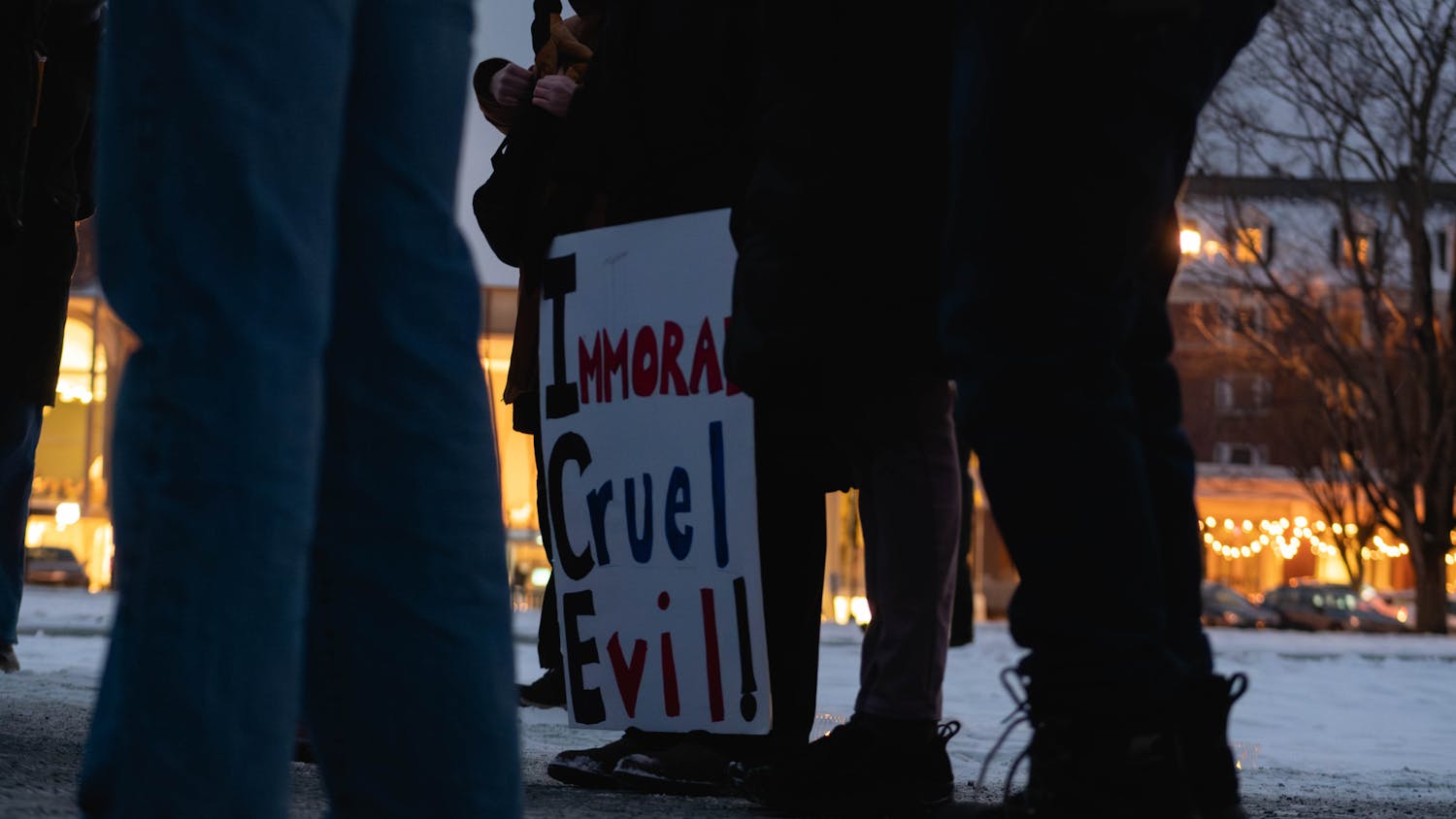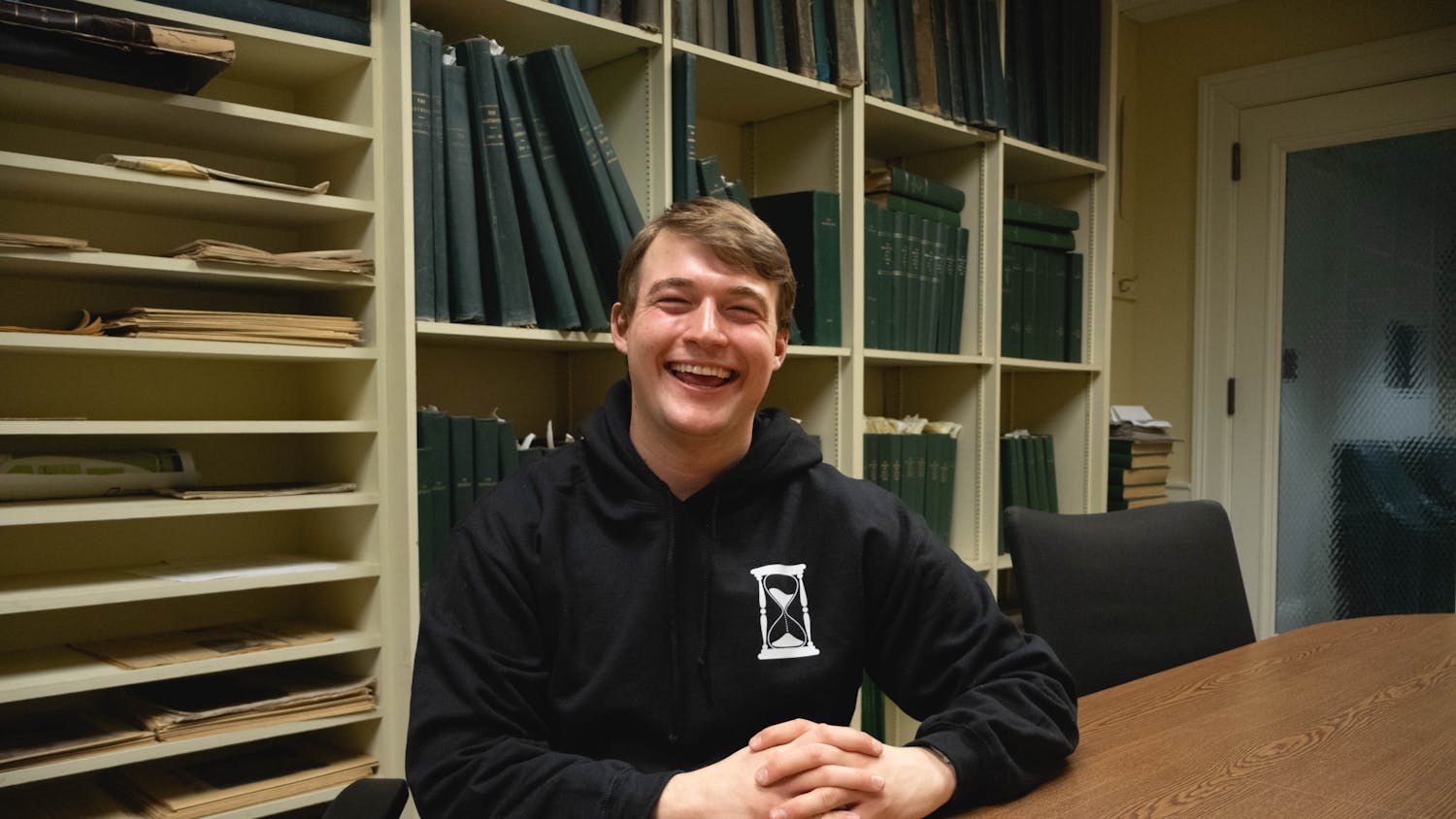The Special Collections room in Baker Library closed its doors for the last time yesterday afternoon, and will reopen in its new location on December 1 in Webster Hall's Rauner Library, according to Special Collections Librarian Philip Cronenwett.
During this time, students will not have access to the collection's more than 100,000 books, 500,000 photographs and 6.5 to 7 million manuscripts, he said, although some of the documents may be available on the Internet. Cronenwett called the situation unfortunate but inevitable.
He said Special Collections is closing now because the library staff needs time to prepare for the move, which is to take place in three weeks.
"There's a tremendous amount of work involved in moving a library," he said, mentioning cleaning out offices, tagging every shelf and marking boxes so all the books will be placed in the correct location in Rauner.
Since the room in Baker could not hold all of the collection's documents, Special Collections has been storing some of them at Dartmouth's storage library, which is not as accessible as the other libraries, Cronenwett said.
"There is material scattered all over," he said, explaining that books are stored from the second level of the stacks to the attic in Baker. The Special Collections branch is also constantly acquiring new documents, he said.
There will now be room for the vast majority of this material in Rauner Library, Cronenwett said. Further reasons for the move include the need for more space for students, such as seminar and reading rooms, he said.
"For us, that's the critical thing," he said.
Cronenwett explained that since the library's Special Collections branch works together with many academic classes, mainly freshman and senior seminars, the room in Baker was frequently packed for lack of space. Having more public space for patrons, he said, would make the situation "1,000 percent better," he said.
Special Collections has hired a book-moving firm called National Library Relocation, Cronenwett said. He said he feels confident that none of the books will be damaged during the move, although it is always a possibility.
"Anything could happen to them," he said.
Cronenwett said he is not especially concerned about potential damage to the documents occurring during the move, because there is a risk of damaging them whenever any patron of the library uses them.
Special Collections works with patrons to show them how to handle documents safely, Cronenwett said. If students damage a document, he said, they will not be held liable; instead, the library will either repair the document or send it out to be repaired. Cronenwett also said he was pleasantly surprised by the responsible way the students handle the documents they use in the Special Collections room.
Planning for the move from Baker Library to Rauner started a year ago, Cronenwett said, and physical work on the new library began six months ago. Rauner is not yet completed, but it will be finished by its scheduled opening date in December, he said.
Last fall, workers also constructed a set of stacks in the underground area connecting Baker Library with Webster Hall. The College announced its plans to convert Webster Hall in January of 1994, sparking considerable protest from students.
Bruce Rauner '78 of Chicago donated $5 million to the College for the construction project.



